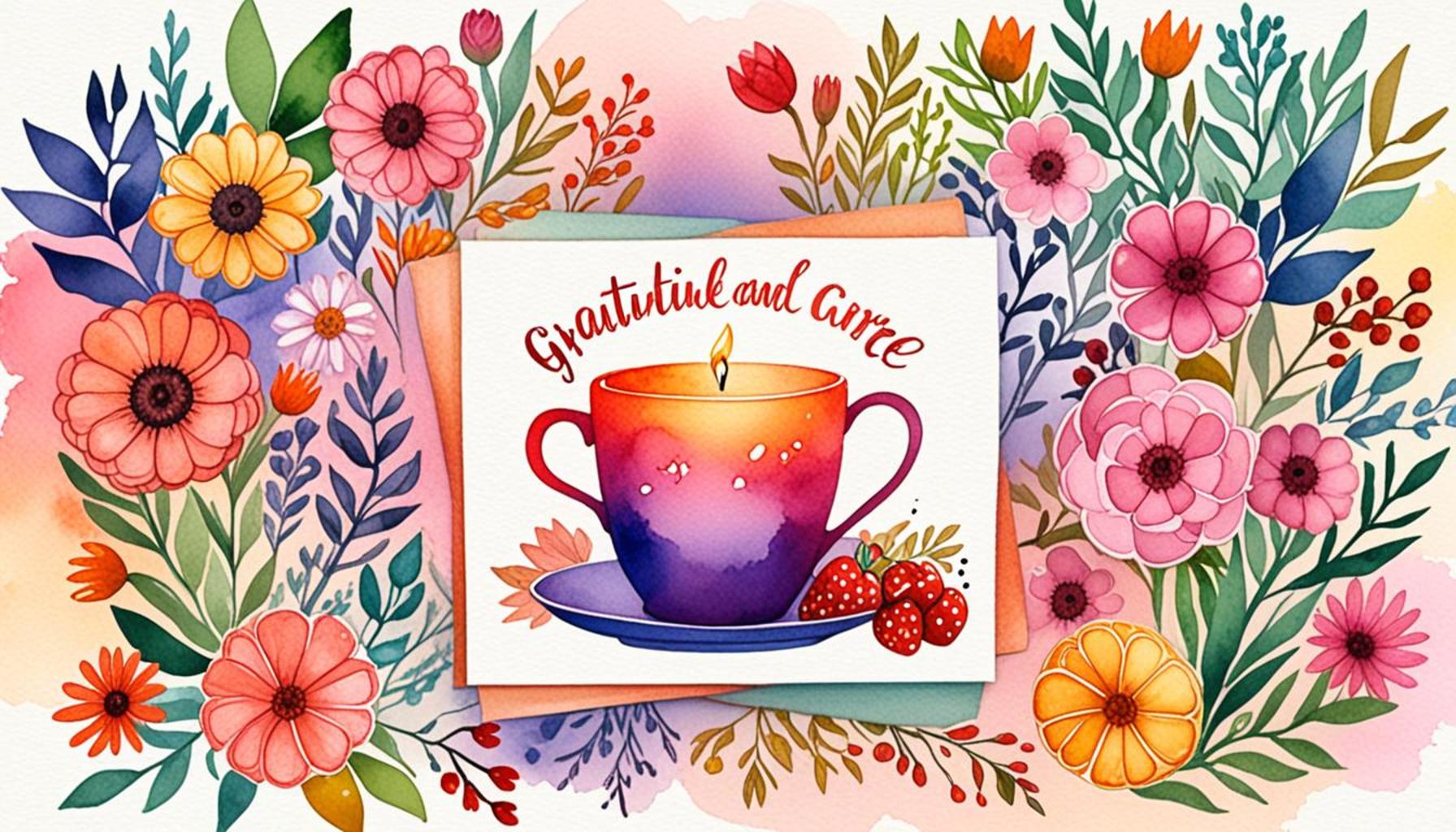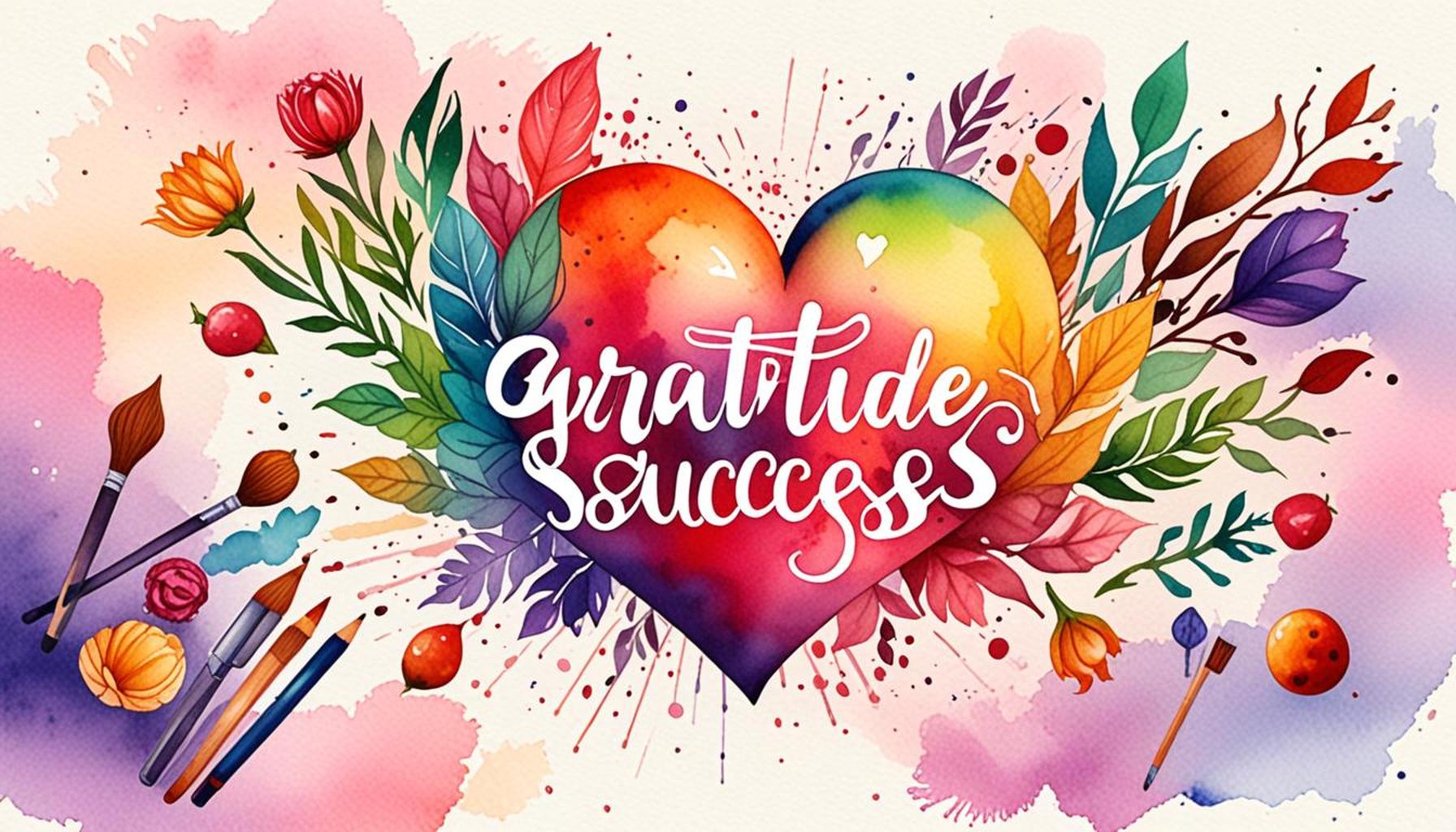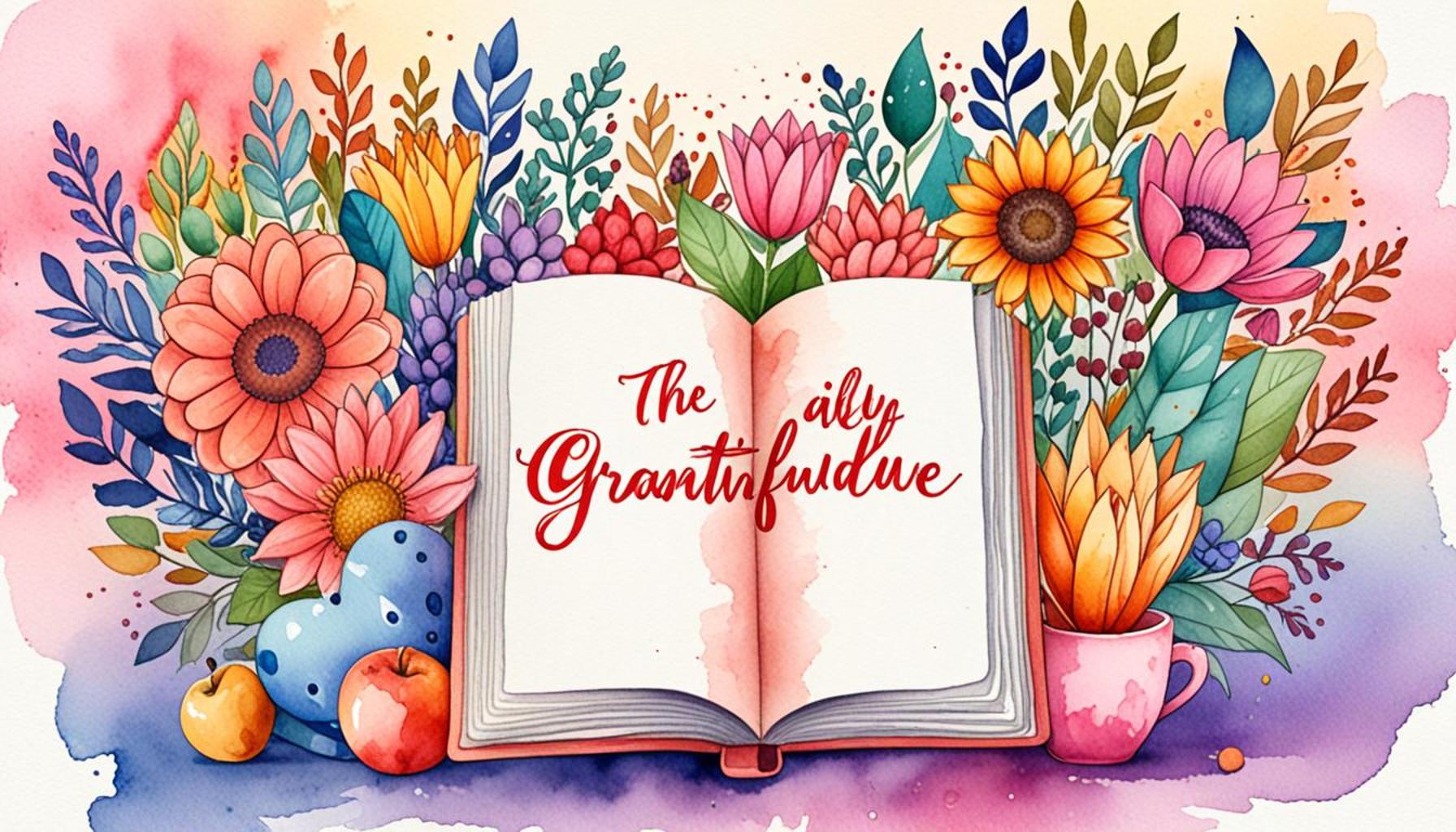Gratitude and Self-Care: How Thanking Yourself Can Improve Your Self-Esteem

Unlocking Self-Worth through Gratitude
In a world filled with hustle and bustle, taking a moment to appreciate oneself can feel revolutionary. Gratitude, particularly towards oneself, serves as a powerful tool for enhancing self-esteem and fostering a deeper sense of self-worth. When you consciously thank yourself, you initiate a positive feedback loop that can uplift your mental health and overall well-being. Existential challenges in fast-paced environments, like those often experienced in Nigerian cities such as Lagos or Abuja, can enhance feelings of self-doubt and overwhelm. A simple practice of self-gratitude might counter this trend.
Consider these benefits of practicing self-gratitude:
- Increased self-awareness: Regularly acknowledging your achievements, whether big or small, fosters a better understanding of your strengths. It encourages you to reflect on your journey, recognizing the hard work put into your daily tasks, from completing a work project to simply managing the challenges of daily life.
- Boosted emotional health: Gratitude can reduce feelings of anxiety and depression, providing a clearer path to self-love. For example, studies have shown that those who actively practice gratitude report higher levels of happiness and lower levels of stress. In a culturally rich context like Nigeria, your acknowledgment of personal growth can be deeply uplifting.
- Improved relationships: When you appreciate yourself, you set a healthier standard for how you interact with others. This practice can transform your social circles, allowing you to build relationships grounded in respect and mutual appreciation.
In many parts of Nigeria, cultural values emphasize community and shared experiences. Interestingly, self-thankfulness encourages you to celebrate even small victories. For instance, recognizing efforts in community service or personal development becomes a stepping stone towards building self-esteem. This could involve celebrating the completion of a local project or merely acknowledging a skill you have enhanced. As you express gratitude for your journey, you empower yourself to face challenges with renewed strength. The resilience captured in Nigerian proverbs often reflects this sentiment; they remind us that every step, no matter how small, holds value.
In the upcoming sections, we will explore practical methods to incorporate self-gratitude into your daily routine. Techniques such as maintaining a gratitude journal, practicing mindfulness, or even verbal affirmations can serve as gateways to transformation. Regularly setting aside time for self-reflection not only fosters a deeper connection with oneself but also nurtures one’s ability to confront external challenges with confidence. It is time to elevate your self-care practice and uncover the profound connection between gratitude and self-esteem.
As we continue on this journey of self-discovery, remember that each act of gratitude is a step toward unlocking a healthier relationship with yourself. Embrace this practice and watch as it unfolds into a more empowered and fulfilling existence.
YOU MAY ALSO LIKE: Read read another article
Embracing Self-Recognition for Enhanced Well-Being
Incorporating the practice of gratitude into your daily life can lead to remarkable shifts in your self-perception. When you begin to thank yourself for your accomplishments and efforts, you nurture a sense of appreciation that extends far beyond surface-level acknowledgments. This act of self-recognition not only encourages personal growth but also serves as a mechanism for mitigating feelings of inadequacy that may arise from societal pressures. In cities such as Lagos and Abuja, where the pace of life can be overwhelming, taking time to celebrate your wins—no matter how small—can dramatically alter your perspective.
Moreover, understanding the psychological impact of gratitude on self-esteem reveals why this practice can be transformational. Studies indicate that individuals who engage in gratitude exercises often experience an increase in self-esteem and a reduction in negative self-talk. This can be particularly relevant in a Nigerian context, where cultural comparisons and communal expectations can inadvertently lead to diminished self-worth. Recognizing and expressing gratitude towards oneself can break this cycle, providing a buffer against external validation pressures. But what does this practice entail?
- Create a Gratitude Journal: Setting aside time to write down what you appreciate about yourself fosters a deeper connection to your achievements. Detailed entries about your skills, effort, and personal growth can serve as a source of motivation during tough times.
- Engage in Daily Affirmations: Verbalizing positive affirmations is a simple yet powerful method of reinforcing self-love. Phrases like “I am worthy” or “I have made significant progress” can assist in shifting your mindset towards positivity.
- Mindfulness Practices: Incorporating mindfulness exercises, such as meditation or deep breathing, can enhance your awareness of self-gratitude. By being present in the moment, you allow space for self-reflection and acknowledgment of your efforts.
While the hustle of daily life can often overshadow personal achievements, creating dedicated moments for self-thankfulness can lead to greater self-acceptance. Consider a situation where you overcame an obstacle, like delivering a project on time at work or helping a neighbor with groceries. Instead of simply moving on to the next task, take a pause to commend yourself for that effort. This conscious recognition acts as a form of self-care, signaling to your mind and body that you are deserving of acknowledgment and love.
As we explore further, we will examine how integrating these gratitude practices into your everyday routine can enrich your overall mental health. This journey of cultivating self-gratitude is not just about feeling good momentarily; it’s an essential aspect of maintaining a healthy self-image that empowers you to tackle challenges head-on. The road to improved self-esteem is paved with the moments you choose to thank yourself, steering you towards a more fulfilling existence.
| Advantage | Description |
|---|---|
| Boosts Emotional Resilience | Practicing gratitude helps in building a strong emotional foundation, allowing individuals to better handle stress and challenges without diminishing their self-worth. |
| Enhances Self-Compassion | Thanking yourself fosters a sense of self-compassion, making you less critical of your failures and more forgiving of your imperfections, ultimately leading to greater self-esteem. |
Engaging in routines that emphasize gratitude can lead to profound changes in your outlook on life. When you learn to appreciate your efforts, no matter how small, you create a ripple effect that influences not just your emotional state but also your interactions with others. As you cultivate this practice, you may find an increase in your overall happiness levels, which in turn strengthens your confidence and self-image. Moreover, studies suggest that people who actively engage in self-thankfulness demonstrate improved mental health outcomes, as they become more resilient in the face of adversity. This reinforces the idea that self-care practices like gratitude are not merely for the moment but are essential long-term investments in your emotional well-being.
SEE ALSO: Click here to read another article
Integrating Gratitude Into Everyday Routines
To truly reap the benefits of gratitude as a form of self-care, it is crucial to integrate these practices into your daily routines. This intentional effort can lead to sustained improvements in your self-esteem and overall mental health. One effective way to accomplish this is through the practice of gratitude rituals, which provide structured moments within your day dedicated to self-acknowledgment.
Creating a morning ritual that includes gratitude can set a positive tone for the entire day. For instance, upon waking, take a few minutes to meditate on three things you appreciate about yourself—perhaps your resilience in facing challenges or your ability to empathize with others. In a fast-paced environment like Lagos, where every second counts, these few minutes can serve as a grounding practice, equipping you with the mental clarity to navigate daily pressures.
A study published by the American Psychological Association highlighted that individuals who regularly engage in gratitude practices experience heightened levels of positive emotions and reduced instances of depression. For many Nigerians who are often faced with economic and social stressors, adopting gratitude can counteract negative experiences, gradually shifting your focus from what is lacking to what is already present in your life. It’s about changing your narrative.
- Conducting a Weekly Reflection: Set aside time at the end of each week to reflect on your experiences. Consider not just what you accomplished, but how you grew through those experiences. This reflection can serve as a testament to your capabilities, helping to reinforce your self-worth.
- Establishing a ‘Thank-You’ Ritual: Whether this means sending a text message to yourself, writing a letter, or simply stating aloud what you value in yourself, this expression solidifies the bond that you have with your self-perception.
- Sharing with Others: Engaging friends or family members in a gratitude circle can amplify the effects of gratitude. Sharing what you appreciate about yourself can inspire others to do the same, fostering a culture of self-love that flourishes within your community.
Another avenue to bolster your sense of self through gratitude involves actively participating in community service. Helping others can provide a fresh perspective on your life. By using your skills to benefit those around you, such as volunteering at an orphanage in Abuja or mentoring local youth, you gain a sense of purpose that enhances your own self-acknowledgment. Research has shown that altruistic behavior is directly linked to feelings of fulfillment and pride, further enriching your self-esteem.
This intertwining of personal recognition and community betterment cultivates a profound sense of belonging. In many Nigerian cultures, community is paramount, and when you feel valued both as an individual and as a part of a greater whole, your self-esteem can flourish. The celebration of your unique qualities contributes to your identity, allowing you to engage with others more fully while nurturing a positive self-image.
In conclusion, making gratitude an intrinsic part of your daily life isn’t just a luxury; it’s a vital component of a holistic approach to self-care. Embracing gratitude as a means of self-recognition paves the way for improved self-esteem, allowing individuals to celebrate their unique qualities and accomplishments, regardless of the external narrative. As you embark on this transformative journey, remember that every small step counts—cultivating gratitude ultimately leads to a richer, more fulfilling life experience.
CHECK OUT: Click here to explore more
Empowering Yourself Through Gratitude
In conclusion, the practice of gratitude is not merely an act of acknowledgment but a profound tool for self-care that can significantly enhance your self-esteem. By consistently recognizing and appreciating your own strengths and accomplishments, you set the foundation for a healthier self-image, which is particularly important in the context of our challenging environment in Nigeria. Amid economic and social pressures, the power of gratitude transforms the narrative of self-doubt into one of self-empowerment.
Integrating gratitude into your daily life, whether through morning reflections, weekly appreciations, or community service, creates a tapestry of positivity that enriches both personal and communal well-being. Each moment spent in self-acknowledgment cultivates resilience, inviting a shift from a mindset focused on shortcomings to one celebrating potential. This shift can propel you toward greater fulfillment and joy.
Moreover, encouraging a gratitude culture within families and communities can forge deeper connections and inspire collective self-love. As individuals uplift one another, self-recognition expands beyond the individual, fostering a supportive network that champions mental and emotional health. Remember, the journey towards improved self-esteem through gratitude is ongoing, and every effort counts.
As you embark on this transformative path, consider adopting these practices widely. Start today by taking note of what you appreciate in yourself, and let gratitude serve as a guiding light toward a more enriching and fulfilling life.


